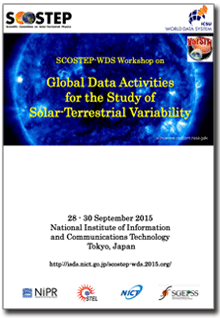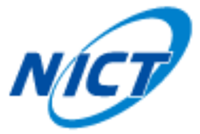Practical Information
Contents
- 1. Visa
- 2. Currency and Exchange
- 3. Consumption Tax
- 4. Traveler's Checks and Credit Cards
- 5. Electricity
- 6. Weather
Visa
A visa is required for citizens of countries without visa-exemption agreements with Japan. Please contact the nearest Japanese Embassy or Consulate for visa requirements. Detailed information is available through the website of the Ministry of Foreign Affairs of Japan. For those participants need an invitation letter in order to make visa arrangements, please contact us.
Currency and Exchange
The unit of currency in Japan is the 'yen' (JPY), and is the only accepted currency in almost all shops and restaurants. Paper notes come in four denominations (10,000 yen, 5,000 yen, 2,000 yen, and 1,000 yen) and metal coins in six denominations (500 yen, 100 yen, 50 yen, 10 yen, 5 yen, and 1 yen). As of March 2015, the exchange rate is approximately 120 JPY = 1 USD. You can purchase Japanese yen at a reasonable rate in foreign exchanges at all international airports and on high streets, as well as within most major banks.
Consumption Tax
A consumption tax (value added tax) of 8% is added to the price of all goods purchased in Japan. Typically, this is included in the stated price, but may sometime be written within parentheses.
Traveler's Checks and Credit Cards
The use of traveler's checks is not popular in Japan and they are typically only accepted at airports, major banks, and large hotels. VISA, MasterCard, Diners Club, and American Express credit cards (and debit cards with a credit facility) are widely accepted at shops and restaurants in urban areas. Many ATMs in Japan do not accept foreign credit/debit cards for cash advances; however, money can be withdrawn from ATMs at the Japan Post Office and Seven-Eleven convenience stores. Overseas participants are strongly recommended to exchange currency into JPY upon your arrival at international airports in Japan, or to obtain yen in advance in their own country.
Electricity
Electricity is supplied at 100 volts, 50 Hz AC in eastern Japan, including the Tokyo area. The type of plague is the same one being used in U.S.A (A-type).
Weather
The normal temperature in late September (daytime) is 23-25 deg in Celsius, still in the sub-tropical condition, namely "warm and wet". Do not forget to carry an umbrella because our workshop will be held in the middle of the notorious typhoon season in Japan. Previous two WDS-related symposia (Kyoto in 2011, and Tokyo in 2013) were troubled by typhoons. What happened twice will happen three times?






